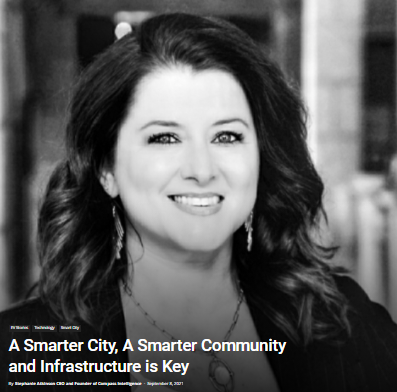|
Smart cities or intelligent cities are not only about technology improving city services, but they are about improving the community experience as you live, work, and play. Yes, much has changed over the past 18 months, but city projects are moving forward and with a boost of energy because of the pandemic and new funding sources. The industry as a whole is finding new project opportunities centered around automation, remote operations, contactless services, public health and safety, and new ways to deliver legacy services to avoid the face-to-face interaction for safety purposes. A few key technologies directly aiding in smart city initiatives include Internet of Things (sensors, connecting assets, tracking assets, real-time alerting or intelligence), mobile applications, augmented or virtual reality, artificial intelligence, and machine learning.
Historically, smart city projects have centered around traffic management, smart lighting, and city asset management, and while those areas are expected to continue to be areas of focus, new use cases are coming into the mix. Under the American Rescue Plan and Coronavirus Relief Fund (CARES ACT), cities and public schools are receiving emergency funding to support in projects related to safety, healthcare, and administering city services in new and safe ways. READ MORE AT EXECUTIVE VIEWPOINT Comments are closed.
|
Inside MobileCovering hot topics in the industry, new research, trends, and event coverage. Categories
All
|


 RSS Feed
RSS Feed
